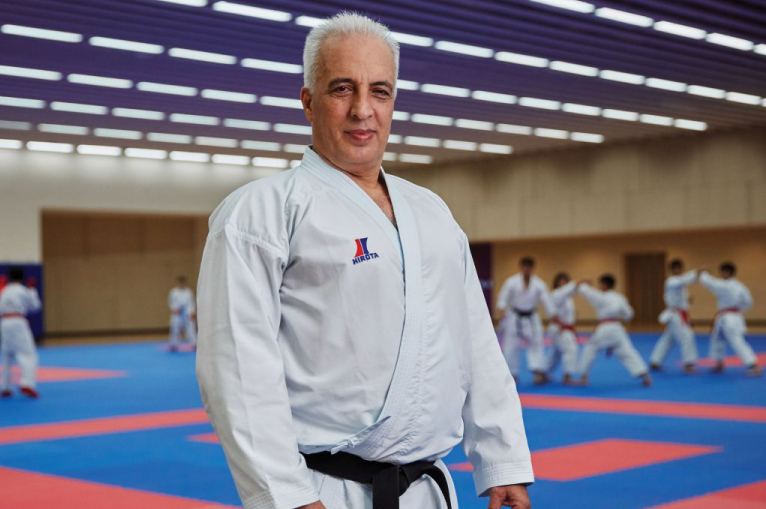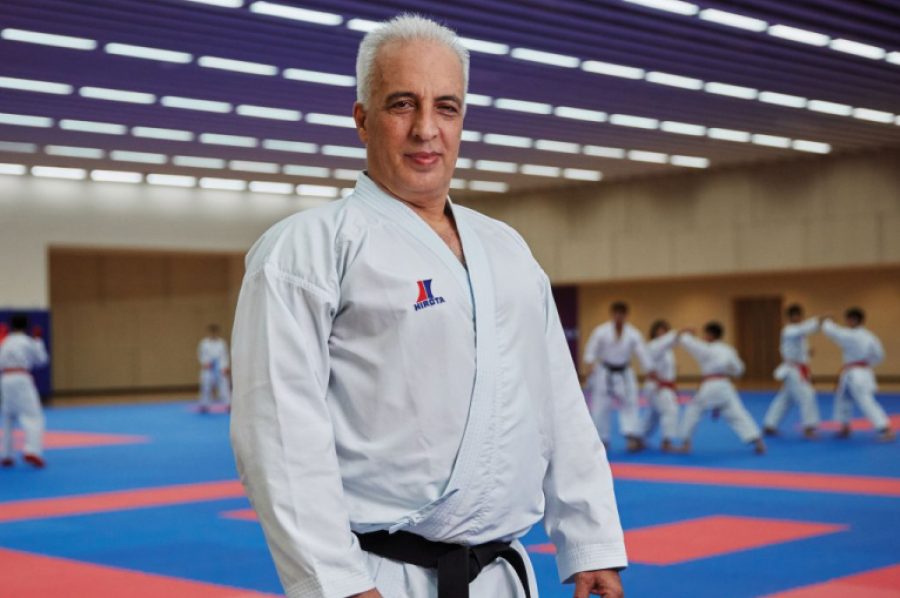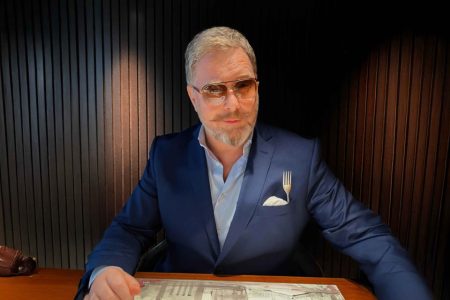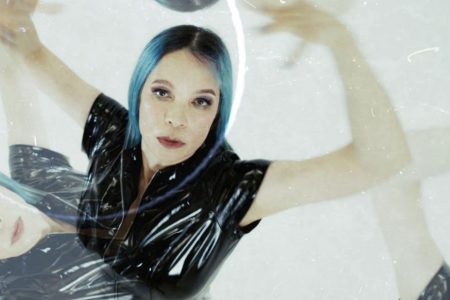Mohammad Reza Rashidnia packs plenty of competitive experience under his black belt and has been the Macau Karate-do Federation coach since 2002.
While most people have heard of karate, many may not be familiar with karate-do. This is a martial arts discipline which refers to a way of practicing karate that focuses on its virtues as a lifelong path of self-improvement. An expert in this discipline, Rashidnia was initiated in karate-do 48 years ago in Iran when he was just 13 years old.
He may be a coach these days but as an athlete in his younger years, he scooped silver and bronze medals at the Iran National Karate Championships, as well as gold medals at military competitions in the country. However, he was never able to compete on an international level because he was at his peak during torrid times for the Middle Eastern country, including the 1979 Iranian Revolution and the Iran-Iraq War between 1980 and 1988. These conflicts made training for and attending international competitions far too problematic.
As he aged, however, the champion converted his passion for the sport into a coaching career, first training military karate teams from all over Iran in Tehran, the capital and his hometown. In 1996, aged 39, he became Iran’s national karate team coach in a country where the Japanese sport was becoming a widespread phenomenon.
Rashidnia’s relationship with Macao began when he met the previous head of the Macau Karate-do Federation, José Martins Achiam, at a sports event in Singapore in 1999, when he was the coach of Iran’s national karate team. His experience in the discipline impressed the head of the federation so in 2001, when they met again at another event in Malaysia, he was invited to move to Macao and prepare local karate competitors for the 2002 Asian Games in Busan, South Korea. He accepted and under his training and guidance, the team brought home three medals – a men’s silver and two women’s bronzes. Since then, he and his team have participated in dozens of championships and tournaments across the continent, including five Asian Games and two East Asian Games. Under his leadership, the competitors have collected more than 200 medals.
Rashidnia has been the head of Macao’s team for the past 18 years and he says he is grateful for the trust that has been placed in him over such a long period. “The teamwork is very important,” he explains. “They have allowed me to run the team any way I want here in Macao.” Coupling the science of sport with technical and tactical preparations, he stresses that karate-do is more than just the fighting – the suffix ‘do’ means ‘the way of’, implying it is both a fighting system and path to self-knowledge. “It involves physical and mental training,” says Rashidnia. “You learn how to control yourself and your emotions. I love my job. This is my life.”






